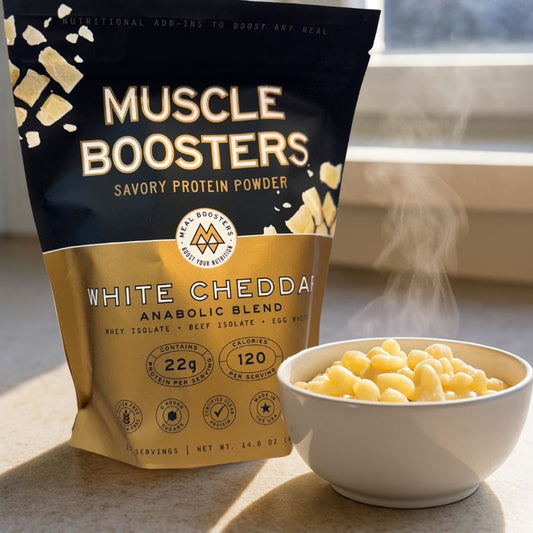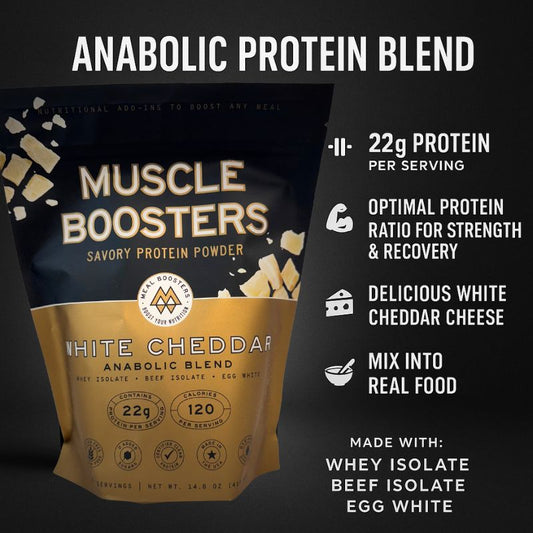The Science Behind Collagen: How It Works and Why It Matters

Collagen is often called the “building block” of the body, and for good reason. It’s the most abundant protein in humans, playing a vital role in skin, bones, muscles, tendons, and ligaments. But collagen is more than just a structural protein; it’s a key player in maintaining health and vitality across multiple systems.
Despite its popularity, many people don’t fully understand what collagen is, how it works, and why it’s so essential. This blog takes a deep dive into the science behind collagen, exploring its structure, functions, and benefits while addressing why supplementing with collagen can be a game-changer for overall wellness.
What Is Collagen? A Closer Look at the Building Block of Life
The Structure of Collagen
Collagen is a fibrous protein made up of long chains of amino acids, primarily glycine, proline, and hydroxyproline. These amino acids are arranged in a triple-helix structure, giving collagen its strength and flexibility. This unique molecular design enables collagen to serve as the body’s primary scaffold, providing support and resilience to various tissues.
There are at least 28 known types of collagen, but the majority in the human body falls into three main categories:
- Type I Collagen: Found in skin, tendons, bones, and ligaments, it provides tensile strength and is the most abundant type in the body.
- Type II Collagen: Found in cartilage, it cushions joints and supports mobility.
- Type III Collagen: Found in skin, blood vessels, and internal organs, it supports elasticity and cardiovascular health.
The structure of collagen is what makes it essential for maintaining the integrity of tissues under constant stress and repair.
How Collagen Functions in the Body
Collagen is indispensable for maintaining the body’s structural integrity. Here’s how it supports key systems:
1. Skin and Aging
Collagen forms the extracellular matrix that gives skin its firmness, elasticity, and hydration. It acts as the framework for dermal layers, keeping skin smooth and youthful. However, as collagen production declines with age, the structural support weakens, leading to fine lines, wrinkles, and sagging.
Scientific Insight:
A 2014 study published in Skin Pharmacology and Physiology demonstrated that women who consumed collagen peptides daily for eight weeks experienced a 20% reduction in skin wrinkles. Collagen’s ability to replenish skin elasticity and hydration is why it’s often considered a cornerstone of anti-aging solutions.
2. Bone and Joint Health
Collagen is a critical component of bone and joint health. It provides the structural framework for bones, contributing to their density and strength, while forming the cartilage that cushions joints. When collagen levels drop, bones may weaken, and joints may become stiff or painful, increasing the risk of osteoporosis and osteoarthritis.
Scientific Insight:
Research in Current Medical Research and Opinion (2018) found that collagen supplementation improved joint pain and mobility in athletes and older adults. Additionally, a 2021 study in Nutrients showed that postmenopausal women who took collagen peptides for 12 months experienced significant improvements in bone mineral density.
3. Muscle Repair and Growth
Collagen isn’t just about structure—it’s also about function. Muscle tissue contains a significant amount of collagen, which contributes to its strength and repair capabilities. During exercise, muscles experience microtears that need to be repaired for growth and recovery. Collagen supports this process by providing amino acids that promote muscle protein synthesis.
Key Amino Acids in Collagen:
- Glycine: Reduces inflammation and supports tissue repair.
- Proline: Enhances tissue resilience and elasticity.
- Hydroxyproline: Stimulates new collagen synthesis.
Collagen works synergistically with other protein sources, making it a valuable addition to a fitness-focused diet.
4. Gut Health and Immunity
The gut lining is one of the body’s most important defense mechanisms, preventing harmful substances from entering the bloodstream. Collagen helps maintain the integrity of the gut lining, reducing the risk of inflammation and leaky gut syndrome.
Glycine, a major component of collagen, also has anti-inflammatory properties that can soothe the digestive tract and support immune function.
5. Cardiovascular Health
Collagen is crucial for the elasticity and strength of blood vessels. A well-maintained collagen network supports healthy circulation and reduces the risk of vascular stiffness, a key factor in hypertension and cardiovascular disease.
Pro Tip: Pair collagen with vitamin C, which plays an essential role in collagen synthesis, for optimal cardiovascular benefits.
Why Collagen Declines and Its Effects on the Body
Collagen production naturally begins to decline in your late 20s, with an estimated 1-2% decrease each year. This decline accelerates during menopause for women, due to hormonal changes.
Factors That Accelerate Collagen Loss
- UV Radiation: Sun exposure damages collagen fibers and slows their regeneration, leading to premature aging.
- Smoking: Chemicals in tobacco inhibit collagen production and degrade existing collagen, causing wrinkles and sagging skin.
- Dietary Deficiencies: A lack of vitamin C, zinc, and amino acids can slow collagen synthesis.
- Chronic Stress: Elevated cortisol levels can hinder the body’s ability to produce collagen.
Visible and Invisible Effects of Collagen Loss
- Thinning, wrinkled skin
- Joint pain and stiffness
- Weaker bones, increasing fracture risk
- Slower muscle recovery and reduced strength
Supplementing with collagen can help counteract these effects, supporting long-term health and vitality.
Collagen Supplementation: How It Works
What Happens When You Take Collagen?
When you consume collagen supplements, they are hydrolyzed into smaller peptides for easier absorption. These peptides enter the bloodstream and stimulate the body’s fibroblasts to produce new collagen.
Scientific Studies on Collagen
- Skin Health: A 2019 meta-analysis in Journal of Drugs in Dermatology confirmed that collagen peptides improve skin elasticity, hydration, and dermal collagen density.
- Joint Health: Research in Aging Clinical and Experimental Research found that collagen supplementation reduced joint pain and improved mobility in individuals with osteoarthritis.
- Bone Strength: A 12-month trial showed significant increases in bone mineral density among women taking collagen peptides.
Why Savory Collagen Supplements Are a Game-Changer
While collagen is often associated with unflavored powders or sweet shakes, savory collagen supplements offer a versatile and satisfying alternative.
Benefits of Savory Collagen
- Culinary Versatility: Savory collagen powders, like those from Meal Boosters, can be added to soups, stews, pasta sauces, and casseroles, making them ideal for meal prep.
- No Sugar or Artificial Sweeteners: Perfect for those following low-carb or keto diets.
- Delicious Flavors: Options like Cheesy Cheese, Classic Buffalo, and White Cheddar make collagen supplementation enjoyable.
How to Incorporate Collagen Into Your Routine
1. Add It to Savory Dishes
- Stir White Cheddar collagen into mashed potatoes for a creamy side dish.
- Mix Classic Buffalo collagen into chicken soup for a spicy protein boost.
- Use Cheesy Cheese collagen in pasta bakes or risotto.
2. Pair It with Collagen-Boosting Nutrients
- Vitamin C: Found in citrus fruits, bell peppers, and strawberries.
- Zinc: Found in seeds, nuts, and shellfish.
- Copper: Found in liver, nuts, and dark chocolate.
3. Create Post-Workout Meals
Combine collagen with other protein sources to optimize muscle repair and recovery.
FAQs About Collagen
Is Collagen Safe for Daily Use?
Yes, collagen is safe for long-term use, with most studies reporting no adverse effects.
Can Collagen Replace Other Proteins?
Collagen is not a complete protein, so it’s best used alongside other protein sources to ensure you’re getting all essential amino acids.
How Soon Can I See Results?
Skin improvements are often noticeable within 8–12 weeks, while joint and bone benefits may take 3–6 months.
Conclusion
Collagen is much more than a trend—it’s a scientifically supported cornerstone of health and wellness. By replenishing the body’s natural collagen levels, you can support skin elasticity, joint mobility, bone strength, and much more.
With innovative options like Meal Boosters Savory Collagen Protein Powder, incorporating collagen into your daily life has never been easier—or more delicious.
Ready to take the first step? Explore our range of savory collagen powders today and discover how collagen can transform your health from the inside out. Grab a bag here!



